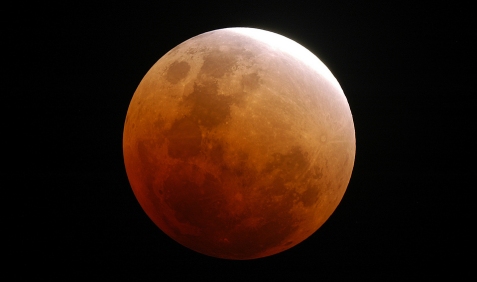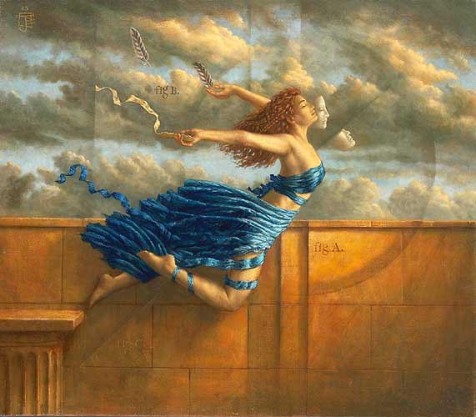
“You shall hold fast to the rope of GOD, all of you, and do not be divided. Recall GOD’s blessings upon you – you used to be enemies and He reconciled your hearts. By His grace, you became brethren. You were at the brink of a pit of fire, and He saved you therefrom. GOD thus explains His revelations for you, that you may be guided.“
I’m sure that Muslims and non-Muslims alike would agree that the verse above teaches a beautiful and valuable lesson that could benefit all of humankind if followed wholeheartedly. Many times when I have discussions with other Muslims, we tend to emphasize on how there is a serious lack of unity in Islam. Whether it’s about Sunnis versus Shias, Salafis versus Sufis, or Arabs versus Persians, these are problems that are very prevalent in today’s world and they need to be addressed in our communities. However, the ridiculous sectarian violence that ensues throughout the Muslim world isn’t the only issue that needs to be examined, but also the way we treat our fellow Muslims in our own communities. Conflicts are never solved through name calling, slandering, condemning, or hating one another based upon faulty generalizations and misunderstandings, they are solved when there is mutual respect and acceptance of one another.
Others have heard me say this before, but I often wonder that if the Prophet (peace be upon him) were alive today, would he recognize this Ummah that we’ve become? The Wahabbi extremists that govern the Holy City of Mecca are delivering fatwas for Sunni Muslims to kill Shia Muslims, destroy their Mosques and Shrines, and call them “kaffir” (infidel). The Palestinians continue to suffer at the hands of the brutal Israeli occupation and yet the so-called Muslim nations have done nothing to help carve out a Palestinian state for their brothers/sisters in Islam. Would the Prophet neglect fellow Muslims killing one another, would he tolerate the way Iran, Saudi Arabia, and the Taliban are oppressing women, would he remain silent whenever Muslims kill innocent people vengefully? The disturbing truth is that there are extremist Muslims out there who really believe that oppressing women, vengeance, and killing Shias or Sufis is actually what the Prophet would do. Their arguments are based on the fact that the Prophet engaged in battles, but the reason why this argument is weak is because they ignore how fighting in Islam is only permitted out of self-defense. There are strict rules regarding fighting that these extremists obviously don’t adhere to (i.e. innocent men, women, and children shall not be killed). The tragic part is that most Muslims who align themselves with this kind of mentality have never even read the Qur’an in its entirety. Instead, they just take the Mullah or Sheikh’s word for it. I don’t have a problem with listening to elders, but when these elders preach arrogantly and pompously about Islam, I cannot help but feel like this is completely contradictory to the peaceful teachings of Islam. I remember one Imam was literally screaming at us for not waking up on time for Fajr and how we will burn in hellfire for it. He was shouting so much that spit would fly out of his mouth and his face would turn red. I chose to ignore his khutbah (speech) and read the Qur’an instead. After the prayer, I decided that I would never return to that Masjid again, and I haven’t. Why do we focus so much on the negative? Why always about hellfire, punishment, and torture when the Qur’an is mostly about Mercy and Compassion? As the Qur’an says:
Unfortunately, this type of mentality makes a huge impact upon the Muslim youth. They develop this belief that anyone who doesn’t follow their religion to a “t” is a deviant or even an “infidel”. I’ve known some of these people who won’t even allow themselves to befriend Christians, Jews, or other non-Muslims. When they speak to other Muslims, they are very quick to criticize them on things like praying five times a day, memorizing Surahs (chapters), and learning the Hadith (sayings of the Prophet). While these are honorable and important practices that all Muslims should aspire to do, the beauty of it can get lost when individuals use them as a measure of another’s person’s faith. Is a person really a bad Muslim if they don’t pray five times a day or doesn’t memorize enough Surahs as you do? Is Islam really about who is better and who is not? Is it really about competition and seeing who has a stronger Iman (Faith)? This kind of separation not only distracts us from larger issues that concern our community, such as improving our relations and image in the eyes of the non-Muslim world, but also from learning about Islam, ourselves, and from each other.
The Faith part draws a lot of confusion, at least to my mind, because its certainly not something you can measure. Consider the body and the mind; they both can be measured with time because they have limitations. The body ages, physical beauty fades, bones become weak, people lose their hair and get bald (that’s a scary thought), etc. The mind also grows old and loses its storage capacities, people’s memories start to fade, they forget things, etc., but what about the Soul? What about the Heart and other Unseen qualities, including Faith? How do you measure such intangible things? I certainly can’t look into the Soul of another human being and say he/she doesn’t believe in God, or he/she is a good or bad Muslim. Can you?
The Holy Qur’an says: “And swell not your cheek for pride at men, nor walk in insolence through the Earth, for Allah Loves not any arrogant boaster” (Luqman, 31:18-19).
The other issue at large is the superiority complex among various ethnic groups. One mistake people generally make is that they associate Islam with a particular culture, namely Arabic culture. Islam, like Judaism and Christianity, finds its home in the hearts of people with many different backgrounds. A Korean Christian, for example, will differ culturally from an American Christian, and the same can be said about the cultural diversity that exists in Islam. A Moroccan Muslim and an Indonesian Muslim will differ in many areas in respect to culture, but it doesn’t mean one is a “better” Muslim. Although there are different cultures in Islam, no matter what part of the world they’re from, all Muslims read their prayers in Arabic. I think this is where the association with Islam being a “non-white” religion comes from (along with other reasons of course). As some of my other fellow bloggers pointed out, there is an Arabization of Islam, i.e. most Muslims follow the dress code and cultural practices that are distinctly Middle-Eastern. It’s almost as if being Pakistani, Indian, Indonesian, Nigerian, or Bosnian doesn’t have any value anymore because those cultures “distort” the religion of Islam. Sadly, I’ve met many Pakistani Muslims who don’t find anything special about being Pakistani, but they’ve adopted to a culture that is either Egyptian, Palestinian, or Saudi (I’m aware that these cultures are different from one another too). Being Pakistani myself, there are certain practices in my culture that are different than Middle-Eastern cultures, but being Muslim doesn’t mean I have to give up being Pakistani or the language of Urdu. The beauty about Islam is that it is compatible with all cultures and all human beings. As the Qur’an says: Among His proofs are the creation of the heavens and the earth, and the variations in your languages and your colors. In these, there are signs for the knowledgeable (Al-Rum, 30:22).
I remember being criticized by a fellow Arabic-speaking Muslim brother just because I cannot speak Arabic. I was really insulted and offended by his words because all it made me think afterwards was: do I have to speak Arabic to be a good Muslim? Thankfully, this experience didn’t stop me from learning Arabic, it just made me more aware of how Muslims of different cultures perceive one another. I personally want to learn Arabic, but I don’t believe that speaking Arabic fluently is going to make someone a better Muslim. To say that God only speaks Arabic is not only insulting, but also a very prejudice and backwards way of thinking. During the time of Jesus (peace be upon him), the extremist Rabbis would say that Angels only understand Hebrew, and not Aramaic (the language spoken by Jesus as his followers). This kind of ethnocentrism tears our community apart and it can be very frustrating that people don’t learn from their history. The Ummayad dynasty was known for this kind of ethnocentrism and their unfair treatment of non-Arab Muslims like the Persians and Turks. The Abbassid dynasty which reigned in Baghdad would eliminate Arab nationalism from their empire and was very tolerant towards the non-Arab and non-Muslim minorities. They also displayed more tolerance towards Shia Muslims. Those who are familiar with their Islamic history know that civilization and achievements in mathematics, astronomy, chemistry, philosophy, and medicine flourished. Now look at the state of the Muslim Ummah and look at how much Muslim nations have “accomplished” from fighting and discriminating against one another.
I think we would all agree that non-Arab Muslims at least take the effort to understand Arabic, and a large portion of them actually end up learning how to speak it fluently, but how many times do we see Arab Muslims learning the languages of Urdu/Hindi, Farsi, Turkish, Kurdish, Senegalese, or Bahasa? Just because the Qur’an was not written in these languages, must we think that Arabic is the only Divine language? I know that the guards in Saudi Arabia will familiarize themselves with some Urdu in order to speak with the South Asian immigrants, but they’re not doing it out of personal interest. This is the same problem I have with American soldiers who take Arabic classes in the United States; they’re not doing it out of personal interest, they’re doing it so they can speak the “enemy’s” language. Non-Arab Muslims learn Arabic so that they can attain a better and richer understanding of the Qur’an, but the way extremist Mullahs and Sheikhs perceive this is that the non-Arab Muslims are inferior.
We need to eliminate the divide that exists between Muslims – whether it’s about who is the “better” Muslim or who hails from a “better” culture/civilization. It doesn’t matter in the eyes of God. God is not going to judge you differently just because you descend from a group of people who invented algebra or built some of the world’s first hospitals and universities, He’s going to look at you as the individual. I also believe that we should speak to our fellow Muslims (and ultimately, all human beings) in a respectful and mature manner. I was on someone else’s blog recently and was really outraged at the way we speak to one another. It’s a horrible feeling when someone comes along and says you’re not worthy enough of being a Muslim just because you don’t pray five times a day, memorize Surahs, speak Arabic, or descend from an honorable family. Who are we to say that we are better when no one can ever possibly be better than God? Who are we to judge when that power only belongs to God?
Let’s start building unity in our communities. Let’s stop separating ourselves in the Mosque. Get to know the Pakistanis, the Palestinians, the Egyptians, the Nigerians, the Iranians, the Turks, the Indonesians, the Europeans, or whatever nationality your fellow brother/sister in Islam belongs to. In Truth, we are born with different cultures, in different countries, but we all come from the same place, and that is from God. Is that really so hard to see?
By the way, the beautiful picture in this post was created by ~Proama, you can see more of his work on Deviant Art!




